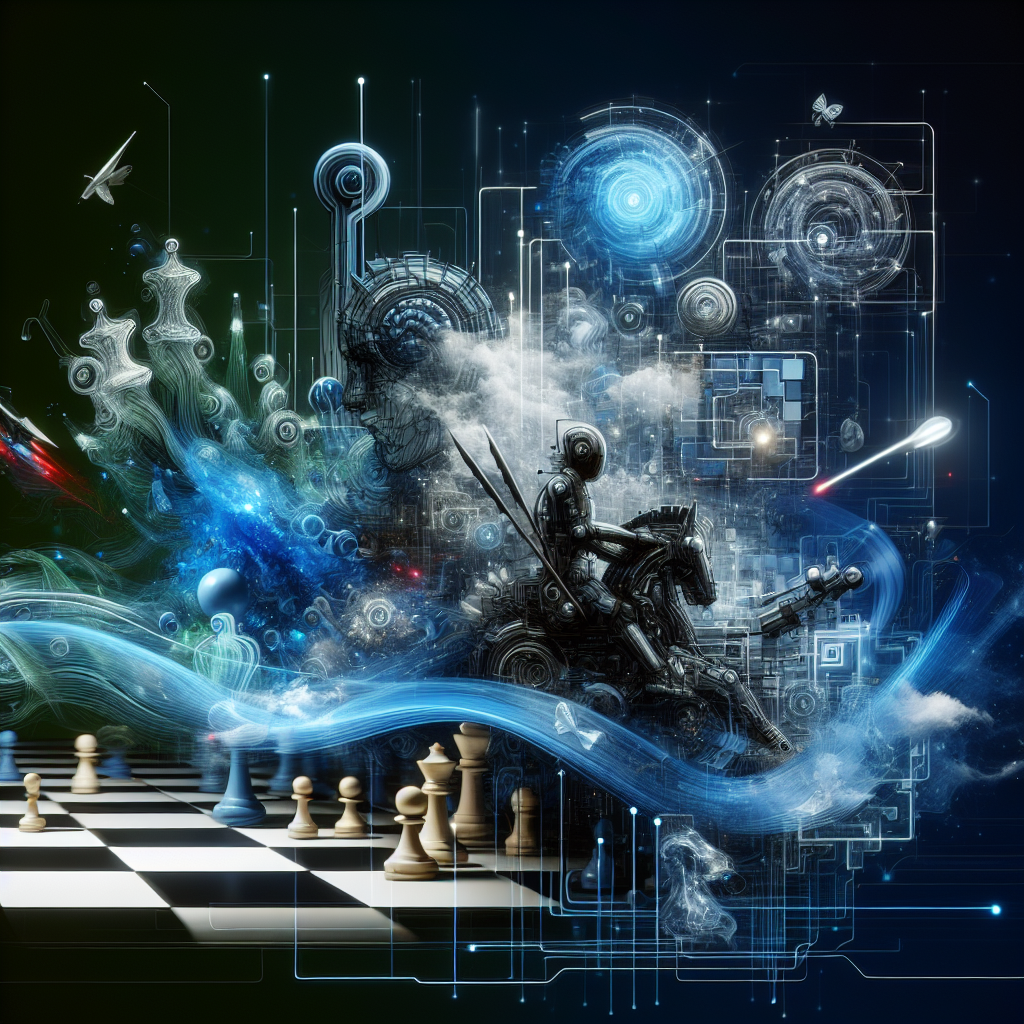Artificial intelligence (AI) is revolutionizing the gaming industry, particularly in the development of game engine technology. Game engines are the software frameworks that developers use to create and design video games. They provide the tools, libraries, and functionalities needed to build interactive and immersive gaming experiences. With the integration of AI, game engines are becoming more advanced, powerful, and capable of delivering realistic and dynamic gameplay.
AI is being used in game engine technology in several ways, including in procedural content generation, character behavior modeling, player behavior prediction, and game testing and optimization. These advancements are shaping the future of gaming by enhancing the overall gaming experience, making games more engaging, challenging, and personalized. In this article, we will explore how AI is transforming game engine technology and the impact it is having on the gaming industry.
Procedural Content Generation
Procedural content generation is the process of creating game content, such as levels, maps, and environments, algorithmically rather than manually. AI algorithms can be used to generate procedurally generated content in real-time, allowing for dynamic and ever-changing gameplay experiences. This not only reduces the time and effort required to create content but also adds an element of unpredictability and replayability to games.
AI-powered procedural content generation can create vast and diverse game worlds that feel realistic and immersive. For example, AI algorithms can be used to generate realistic terrain features, populate environments with dynamic objects and characters, and create complex level designs that adapt to player actions and preferences. This results in more engaging and personalized gaming experiences that keep players coming back for more.
Character Behavior Modeling
AI is also being used to model and simulate realistic character behaviors in games. By analyzing player interactions and inputs, AI algorithms can generate adaptive and responsive character behaviors that enhance the overall gameplay experience. This allows for more intelligent and dynamic NPCs (non-player characters) that can react to player actions, make decisions, and adapt to changing game conditions.
AI-powered character behavior modeling can create more immersive and challenging gameplay experiences. For example, AI-controlled enemies can learn and adapt to player strategies, making them more challenging and unpredictable. NPCs can also exhibit complex social and emotional behaviors, adding depth and realism to the game world. This not only improves the overall player experience but also opens up new possibilities for storytelling and narrative development in games.
Player Behavior Prediction
AI can also be used to predict and analyze player behaviors in games. By collecting and analyzing data on player interactions, preferences, and performance, AI algorithms can generate predictive models that anticipate player actions and reactions. This allows developers to tailor gameplay experiences to individual players, providing personalized challenges and rewards that keep players engaged and motivated.
Player behavior prediction can help developers optimize game difficulty, pacing, and progression to better suit individual player preferences. For example, AI algorithms can adjust enemy difficulty levels based on player skill, provide personalized hints and tips to help players overcome challenges, and dynamically adjust game objectives and rewards to keep players engaged. This not only enhances the overall player experience but also improves player retention and satisfaction.
Game Testing and Optimization
AI is also being used to automate and optimize the game testing and optimization process. AI-powered testing tools can simulate thousands of player interactions and scenarios, identify bugs and performance issues, and suggest optimizations to improve game performance and stability. This not only reduces the time and cost of game development but also ensures that games are of high quality and free of technical issues.
AI-powered game testing and optimization can help developers identify and fix issues early in the development process, resulting in more polished and refined games. AI algorithms can also analyze player feedback and telemetry data to identify areas for improvement and suggest optimizations to enhance the overall gaming experience. This not only improves the quality of games but also helps developers deliver more engaging and satisfying gameplay experiences to players.
FAQs
Q: How is AI being used in game engine technology?
A: AI is being used in game engine technology in several ways, including procedural content generation, character behavior modeling, player behavior prediction, and game testing and optimization.
Q: What are the benefits of using AI in game engine technology?
A: The benefits of using AI in game engine technology include enhanced gameplay experiences, personalized challenges, improved player retention, optimized game testing, and higher quality games.
Q: How does AI improve procedural content generation in games?
A: AI algorithms can generate procedurally generated content in real-time, allowing for dynamic and ever-changing gameplay experiences. This not only reduces the time and effort required to create content but also adds an element of unpredictability and replayability to games.
Q: How does AI enhance character behavior modeling in games?
A: AI-powered character behavior modeling can create more immersive and challenging gameplay experiences by generating adaptive and responsive character behaviors that react to player actions, make decisions, and adapt to changing game conditions.
Q: How does AI predict player behaviors in games?
A: AI algorithms can predict and analyze player behaviors in games by collecting and analyzing data on player interactions, preferences, and performance. This allows developers to tailor gameplay experiences to individual players, providing personalized challenges and rewards.
Q: How does AI automate game testing and optimization?
A: AI-powered testing tools can simulate thousands of player interactions and scenarios, identify bugs and performance issues, and suggest optimizations to improve game performance and stability. This reduces the time and cost of game development and ensures high-quality games.
In conclusion, AI is shaping the future of game engine technology by enhancing gameplay experiences, improving player engagement, and optimizing game development processes. As AI continues to evolve and become more sophisticated, we can expect to see even more advanced and immersive gaming experiences that push the boundaries of what is possible in the world of video games.

